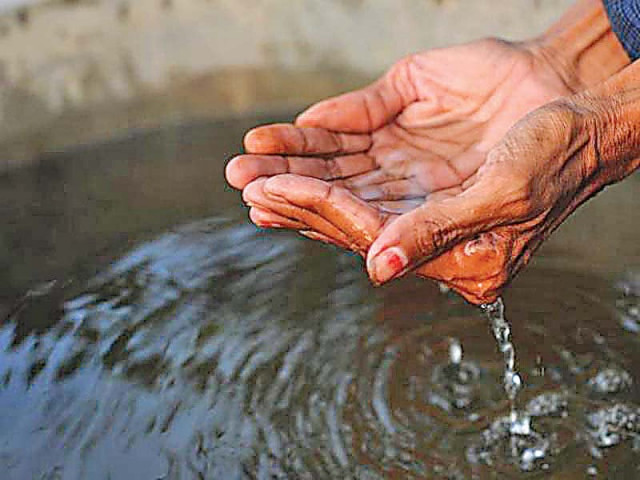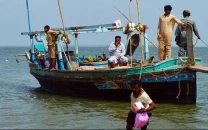SC orders inquiry into Mehmoodabad treatment plant's land allotment
Mustafa Kamal asked to submit reply on under what authority he had allotted land to private persons

PHOTO: AFP
The apex court also directed Syed Mustafa Kamal, now the chief of Pak Sarzameen Party, to submit his written statement on under what authority he had allotted such land to private persons being the then Karachi mayor.
Earlier, Kamal appeared at the SC's Karachi Registry during the hearing of the matter relating to non-functioning of treatment plants in the city.
Kamal said that being the city's mayor, he had no authority to allot the land in question. He said that since 1,218 people were displaced by the Preedy Street road project, they had to be resettled.
He maintained that the Mehmoodabad treatment plant (TP-II) had excessive land, so the affected families were re-settled on a portion of it.
He argued that the City Council had given approval for the allotment of the land to the affected families.
Sindh's water, sanitation issue: Judicial commission seeks timeline to commence work on master plan
Chief Justice of Pakistan (CJP) Mian Saqib Nisar asked Chief Minister Murad Ali Shah to get the matter of the land allotment investigated.
Justice Sajjad Ali Shah observed that the City Council had no authority to allow the allotment of any land, as only change of the status of the land fell within its domain.
Justice Nisar observed that it was important to see how it had committed this illegality. He directed the LG secretary to submit a comprehensive report regarding the legal ownership of the land in question.
He warned that the court will see which law was violated in the allotment procedures and an appropriate order will be passed.
Unchecked business of filtered water
It observed that the growing business of selling so-called filtered water without any certification by the authorities concerned will also be looked into and an inquiry may be ordered to determine whether or not the business was being carried out under any law.
Education in Sindh suffers due to poor sanitation
Justice Nisar observed that it was the duty of the government to monitor such activities and initiate legal action to curb it. "We will not let anyone befool anyone," he said and made it clear that the matter will be taken to its logical conclusion.
Earlier, Kamal had highlighted the issue of the growing business of providing 'filtered' water in the city, saying those involved in the business did not want the citizens to receive potable water from taps.
He alleged that after the tankers' mafia, the new mafia was those involved in unchecked business of filtered water.
The former mayor said the city currently needed 1,240 million gallons per day (MGD) of water, but it was only receiving water from the Hub Dam. He maintained that he had thought of the K-IV project, however, even 20% work wasn't completed.
The big problem with water
He said there is a need of laying trunk water pipelines to bring water to the city through the K-IV project. He said Sindh receives 36,300 MGD, out of which Karachi was getting only 500 MGD - 5.1% - which was an injustice to the city.
He opined that the city's population will increase to 30 million by 2020, which means the demand for water will not be met even with the completion of the K-IV project.
Justice Nisar asked him to provide this information to the court in writing.
Our water and sanitation deficit
Kamal said the Karachi Water and Sewerage Board could provide such details if asked by the apex court, as he was not in the government.
"But, you are trying to get into the government," remarked Justice Nisar, filling the courtroom with laughter.



















COMMENTS
Comments are moderated and generally will be posted if they are on-topic and not abusive.
For more information, please see our Comments FAQ